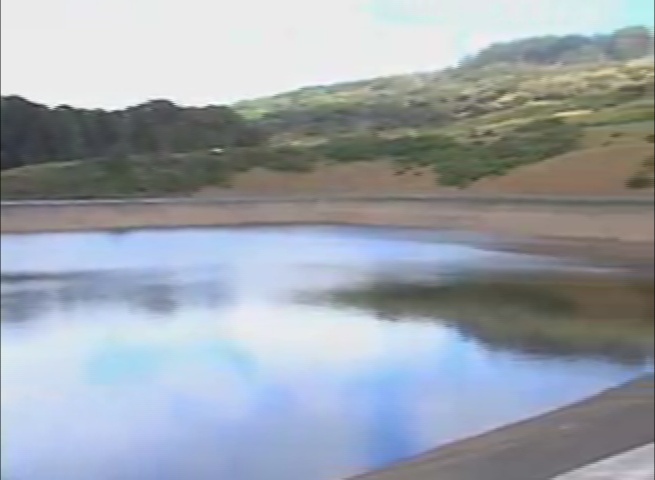Special Water Rates Considered During Times of Shortage
By Wendy Osher
The Council Committee on Water Resources considered a bill today that seeks to amend the county code relating to water shortages.
Director of Water Supply Dave Taylor said that over the past two years, he’s addressed different aspects of the department’s plans including rates and fees, projects, and source development.
Today, he said, “This is one very focused piece meant to accomplish just one thing. The purpose of this bill is recognizing that due to a number of reasons, the draw from the customers can be more than our ability to fill that tank.”
If the department can’t fill the tank as fast as customers are drawing water — be it because of human error, mechanical failure, drought, or other reasons — there’s not going to be enough, according to Taylor.
“Regardless of what you put in ordinances, even if he’s a farmer and you want to give him priority, physics and gravity will make the decision — that is the worst kind of failure that we’re trying to avoid. If we can not meet demand, we won’t decide who gets what,” said Taylor during testimony today.
He continued, “The sole purpose of this bill is to be ready — that if demand from an area exceeds our ability to supply — that the upper level customers don’t have complete outages. The methodology is to use rates as a strong push to get everyone to cut back their usage so that there’s enough for everybody.”
Taylor noted that the bill only applies to county Department of Waters Supply systems, and not to private water systems.
“Because there are no County of Maui Department of Water Supply systems on Lānaʻi, it will have no impact on anything on that island, nor will it have any impact on any private systems within the county,” said Taylor.
“We’re simply using cost as a methodology to get everyone to say ‘I will cutback because I don’t want to pay the high cost.’ If those higher rates are not enough, and the lower end users keep using a lot, the higher elevation users will not have water.”
He said the concept of the methodology is that, “when we have these conditions beyond our control, where there is not enough water to meet demand, we want everyone to cutback so that everyone has some.”
Taylor said the situation happened on Upper Ulumalu Road in recent years when a wet season was followed by drought, and the lower elevations used more water than usual, leaving the upper elevations dry.
“It’s not a revenue raising event; it’s simply giving a strong conservation message through cost so that everyone uses less so that we have some for everybody,” Taylor said. He continued saying the intent of the bill is an “emergency measure,” to ensure that everyone has “some” water.
The proposed bill would:
- authorize the director of Water Supply, with the approval of the mayor, to issue a declaration of water shortage when the water supply becomes inadequate in any area of the county;
- establish stages of water shortage based on the severity of the shortage;
- require the director of Water Supply to provide a report of findings to the Council within 45 days of a declaration of water shortage;
- clarify the director’s authority to control water usage during a water shortage, including the application of water shortage rates;
- provide a partial exemption for agricultural consumers from water shortage rates; and
- require Council review of the ordinance by July 1, 2014, and every three years thereafter.
Councilmember Gladys Baisa, who represents the Upcountry area of Maui said concerns have been expressed by agricultural customers.
“For the little farmer who’s on the edge, where the profit margin is so tiny, everything that we add to them financially becomes a burden to them, and could essentially put them out of business,” said Baisa.
Baisa also expressed concerns about the Upcountry Water Meter Priority list and if the county could continue issuing water meters amid concerns of water shortages. “If I’m going to pay $12,000 for a water meter, I want water,” said Baisa.
Molokaʻi Councilmember Stacy Crivello said those who are conserving water on a regular basis should be recognized. “I think instead of being so punitive, [we should look at] how can we work with the consumers to conserve and to know when you anticipate the various stages.
“I feel that we should be working with consumers. Nobody should be slammed with removal of water meters — that’s detrimental to our lifestyle,” she said, suggesting instead that water sources be identified if they are available.
Committee Chair Michael Victorino asked that the item be deferred as more information and conversation takes place.
“This is not something that I think we’re going to be able to finish off today. In the meantime, I would like to get all the information from all the members and the department to formulate what I call a concise plan,” said Victorino.
“To get a usable and fair bill there needs to be a lot of work to be done,” said Victorino.
He said he will make the deferral until around November to allow communities across the county to weigh in on the issue.
Victorino said he hopes input will provide enough information to formulate the bill, address conservation issues, and also help in determining when water sources come online, if the water will be used for drought tolerance or for the addition of water meters.







_1709057595069.webp)



